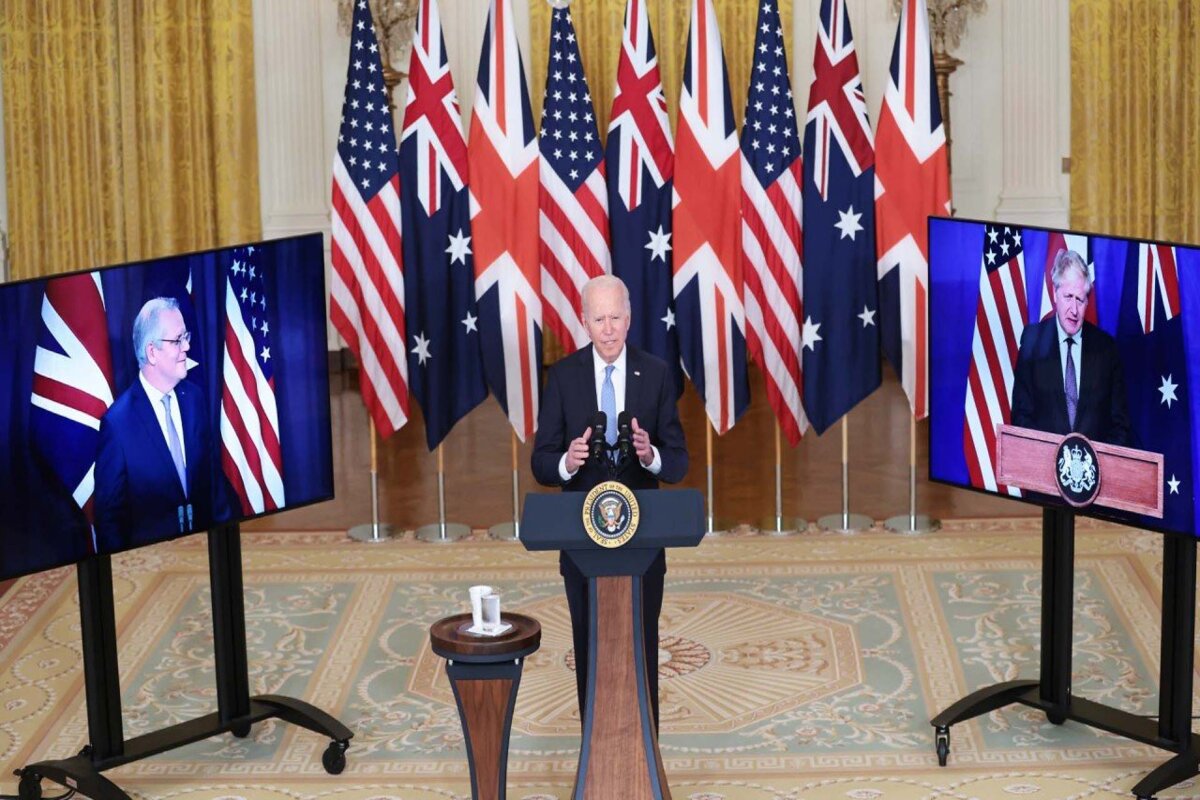Jet Dilemma
India’s fighter jet procurement strategy is at a crossroads, caught between immediate operational needs and long-term self-reliance goals.
True to form, China seems to have come up with a plan which it is implementing robustly through state-controlled as well as sympathetic mainstream media.

Following the stinging official response by Beijing to the announcement of the Australia-United Kingdom-United States of America (AUKUS) security alliance last month, China’s narrative-setting machine is now working overtime to undermine the credibility of this trilateral arrangement to support Australia’s development and deployment of nuclear-powered submarines in the Indo-Pacific.
True to form, China seems to have come up with a plan which it is implementing robustly through state-controlled as well as sympathetic mainstream media. The contours of the narrative being promoted are emerging clearly, as is its target audience. First up, is the harking back to the colonial past of the ‘imperial trio’ ~ with its unstated but obvious implication of racism ~ which plays well with the guilt-ridden global left-liberal establishment. Southeast Asian nations and European Union countries, the primary target audience for Beijing, are susceptible to buying into the ‘imperialistic ambitions of AUKUS’ narrative due to a combination of self-interest and naivety.
Advertisement
Most if not all Asean member-states are fully integrated into the Chinese supply chain, have signed up to Beijing’s Belt and Road Initiative (BRI), and are heavily dependent on China for their economic growth. The European Union is, equally, deepening economic cooperation and eyeing mega trade deals with China.
Advertisement
That’s the self-interest bit. The naivety, or perhaps self-delusion would be the more appropriate phrase, comes from the Asian countries colonised by Western powers eliding the probability that the perpetrators of a neo-colonialism are unlikely to be those who have been guilty of imperial ambitions in the past; indeed, that danger lies elsewhere and much closer home. It is in this context that the strategy to talk up fears of a ‘creeping NATO-isation’ of Asia, growing militarisation in the region, and the territories of Asean member-states turning into a stage for proxy conflicts between the USA and China, needs to be understood.
Beijing is betting on these scare tactics working in Southeast Asia. The cultural schism between the ‘Anglo-Saxon alliance’ (as the AUKUS alliance has been dubbed in some quarters) and Europe is also being exploited by the Beijing-inspired narrative, and it has found takers on the continent. China’s other adversaries including India and Japan are not really the focus of this meta narrative on AUKUS given their conservative assessment of the emerging geopolitical situation which is premised on the fact that the trilateral military pact has undoubtedly spooked Beijing.
For post-World War II Europe, though, the collapse of the Soviet Union and the end of the Cold war has left space for older rivalries ~ such as those with the Anglo-Saxon world ~ to re-emerge. While the trans-Atlantic alliance is still vital for the EU’s security as things stand, the Chinese narrative around AUKUS aims to amplify the influential European voices seeking an independent strategic doctrine for the EU. With American credibility as a global power haemorrhaging, Brexit now an accomplished fact, Australia only a minor geopolitical player, and the French feeling hard done by because they were pipped at the post for the submarine deal, this is fertile ground for Beijing.
Advertisement